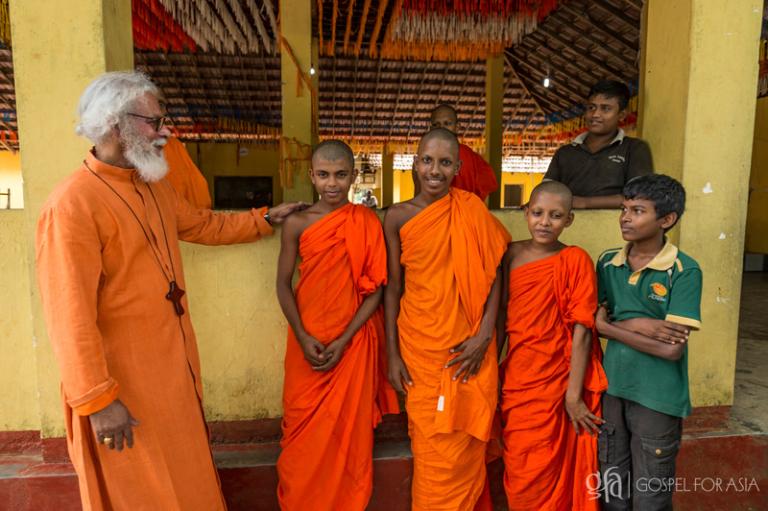Years ago, friends and I experimented with designing listening groups. These small groups with three or four participants met once a month for seven months. Basically, we listened to one another for two hours. After a time of centering prayer where we became stilled and focused, the first person would begin and share where he or she was in life. When the first person was done, we would go back into silence, and the only way we could respond to the one who had spoken after those short moments of quiet was to ask questions. This pattern continued until we had gone around the group. Over seven years, I led some 250 people in listening groups and was amazed by the remarkable growth I saw in many of the attendees. I also was transformed in unexpected ways; I certainly became convinced of the healing power that exists when humans feel heard and understood. 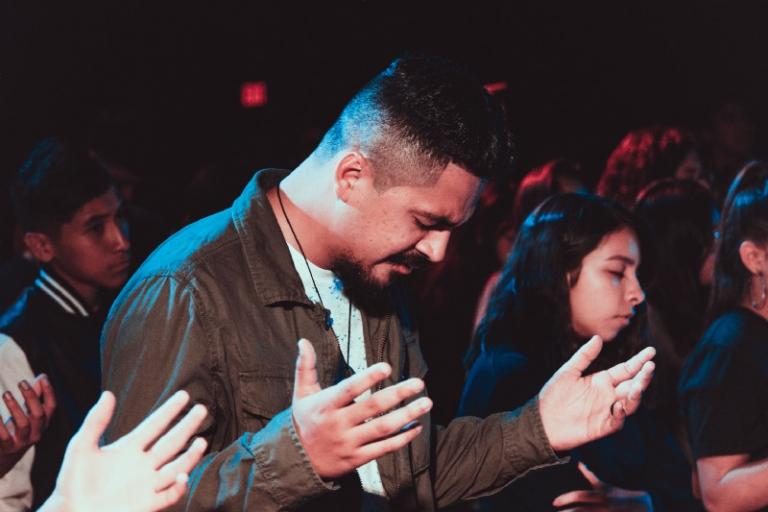 We always take the first session of a listening group to get to know one another a little so that we are not complete strangers. One woman sitting in my living room started her story with these words: “I guess you could say that I was raised by parents who were Evangelical atheists…” Whoa, I thought. Now that’s strong! Evangelical atheism?
We always take the first session of a listening group to get to know one another a little so that we are not complete strangers. One woman sitting in my living room started her story with these words: “I guess you could say that I was raised by parents who were Evangelical atheists…” Whoa, I thought. Now that’s strong! Evangelical atheism?
The woman explained that her parents adhered to conservative Christianity but that their lives were a dysfunctional antithesis to what Scripture explains are the fruits of belief. Over the next month, I kept mulling over this apparent oxymoron: Evangelical atheism. Evangelical atheism.
Evangelical Atheism
Could that be one of the reasons our spiritual fiber is weakening in the West? Are there too many of us who really don’t believe what we say we believe and our dysfunction in living is proof of this personal dissembling? Do the words we say; the thoughts we act out; and the way we function with family, friends, neighbors and work colleagues belie the faith system we say (or in some cases fool ourselves into thinking) we are following? Are many of us really closet Evangelical atheists at heart — at least in part?
I often examine why so many Western Christians wonder, Is this really all there is to Christianity? What’s wrong? Why am I so ineffectual? With so much religious feeding going on, why am I still hungry? Polls released about the time of this women’s statement revealed that 10 percent less Americans claimed to be Christian than what was revealed in previous polls. Statistically, this is a huge shift and indicates a frightening trend. We all need to be asking ourselves, “What is really happening?”
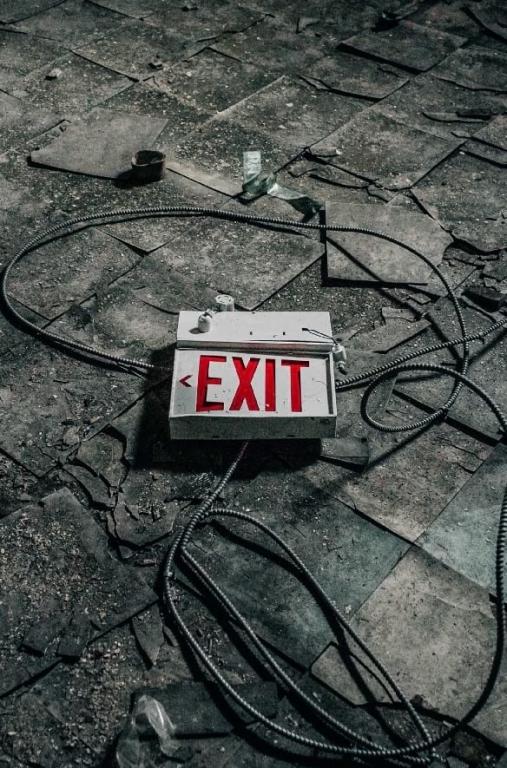
The website “Real Clear Politics” (www.RealClearPolitics.com) reprinted an article from the Christian Science Monitor website (www.csmonitor.com) titled “The Coming Evangelical Collapse.” In it, the author, Michael Spencer, a writer who describes himself as “a post-evangelical reformation Christian in search of a Jesus-shaped spirituality,” predicts the demise of evangelicalism as we know it due to seven predicators.
The first one:
“Evangelicals have identified their movement with the culture war and with political conservatism.”
The second reads,
“We Evangelicals have failed to pass on to our young people an orthodox form of faith that can take root and survive the secular onslaught … our young people have deep beliefs about the culture war, but do not know why they should obey scripture, the essentials of theology, or the experience of spiritual discipline and community. Coming generations of Christians are going to be monumentally ignorant and unprepared for culture-wide pressures.”
Check out the website if you are interested in reviewing the rest of the seven predictions. But let’s concentrate on only one of the predictors: In the years going forward, will that second prediction be one of the evidences of a heretical fissure? Will younger generations hold to a form of godliness but as Scripture says, “without the power thereof”?
“The woman explained that her parents adhered to conservative Christianity but that their lives were a dysfunctional antithesis to what Scripture explains are the fruits of belief. Over the next month, I kept mulling over this apparent oxymoron: Evangelical atheism. Evangelical atheism.”
Paul wrestles with this type of spiritual split personality in his second letter to Timothy, a young man he mentored and loved. He says, “But know this, that in the last days perilous times will come …” He continues with a list of disturbing characteristics: self-adulation, money motivation, lovers of pleasure rather than lovers of God. His conclusion after this disturbing list is
“… having a form of godliness but denying its power” (see 2 Timothy 3:1–5).
I would maintain that one reason the local church is bleeding millennials, and that so many of them are often spiritually adrift, is that their own parents are living out a faith where religious activity has more to do with form, not with a “Jesus-shaped spirituality.” According to Pew polling,
“Almost every major branch of Christianity in the United States has lost a significant number of members, mainly because millennials are leaving the fold. More than one-third of millennials now say they are unaffiliated with any faith, up 10 percentage points since 2007.”
In the documentary “An Unreasonable Man,” which chronicles the remarkable consumer-safety record established by Ralph Nader, the principle reveals how, when coming home from grade school one afternoon, his father, an immigrant to this country asked,
“Well, what did you learn in school today? Did they teach you how to believe, or did they teach you how to think?”
Have we been teaching ourselves how to believe without also emphasizing how to think about what we believe, and then, how that thinking belief works itself out in the proof of how we choose to live? Are we passing this intellectual and theological knowledge on to the next generation in such a way that they one day will look back and recognize the power of previous spiritual models? Will those younger than ourselves identify and remember our belief linked to lifestyles in such power-filled ways that our example will continue to be a motivator for their belief and lifestyle for decades beyond the span of our own lives?
Orthodoxy and Orthopraxy
There are two great rulers by which insidious, private heresy can be measured. One is orthodoxy, right theology. The other is orthopraxy, right living. Scripture is clear that the marriage of both is the cornerstone of Christian faith. Christ is stunningly clear that belief and living must be in sync. He is particularly livid over the empty performance orientation of religious leaders.
“Beware of false prophets. They come to you in sheep’s clothing, but inwardly they are ravenous wolves. By their fruit you will recognize them. Are grapes gathered from thorn bushes, or figs from thistles? Likewise, every good tree bears good fruit, but a bad tree bears bad fruit.” — Matthew 7:15–17.

The way we live is evidence of what we truly believe. Or another way to look at this is in the simple statement that Christ also makes:
“A good man out of the good treasure of his heart brings forth good; and an evil man out of the evil treasure of his heart brings forth evil. For out of the abundance of the heart, the mouth speaks” (see Luke 6:45).
What an indicator of orthopraxy! Our tongues tell.
The Apostle John picks up this theme in his first letter: “If we say we have fellowship with him and walk in darkness, we lie and do not practice the truth,” (see 1 John 1:6) and “He who says he is in the light and hates his brother, is in darkness until now” (see 1 John 2:9). Orthodoxy, what we believe, and orthopraxy, how we live it out, must be in sync. Otherwise, our Christian confession is obliterated by our actions.
Not only should individuals be wary of their own hidden heresies in belief or in practice, religious organizations can become horrific examples of incomprehensible splits between living and doing as well. My husband and I have been in ministry throughout the full five decades of our married life. We were in youth work, planted a church in the inner-city of Chicago and pastored an inter-racial congregation, spent 20 years in daily radio outreach, seven years producing and hosting a daily television show, and sponsored 132 pastors’ conference annually. Together we’ve written dozens of published books, traveled on the speaker’s circuit for 20 years and served as directors of various not-for-profit boards.
We are well aware that the demands of ministry are such that it is more than easy to do God’s work, using approaches and techniques that are not God’s ways. Spiritual schizophrenia is all too easy to slip into. Let’s look at a couple of examples of ministries that have worked hard to prevent evangelical heresy.
Preventing Evangelical Heresy
Gary Haugen, a lawyer formerly employed in the civil-rights division of the U.S. Department of Justice, who was also the director of the United Nations genocide investigation in Rwanda, took a huge lifestyle leap, committing what is essentially professional suicide by resigning his high-powered government positions in order to live out a Jesus-shaped spirituality. He and dedicated colleagues have founded and formed the International Justice Mission, which confronts, rescues and protects those women, men and children who are held in thrall to the deeply entrenched sex slave industries in the world.
In the name of the God of justice, legal expertise is leveraged to combat illegal evil. The Trafficking Victims Protection Act of 2000 provides the tools to combat trafficking in persons both worldwide and domestically. IJM leverages these legal means to combat illegal evil at home and in the world.
In his book Just Courage: God’s Great Expedition for the Restless Christian, Haugen talks about being haunted by John Stuart Mill’s 1859 essay “On Liberty.” (Mill was a philosopher who argued in this essay that “over himself, over his own body and mind, the individual is sovereign.”) The thoughts that gnawed at Haugen were those where Mill examined how words lose their meaning, using Christians as the prime example, since they seemed to have a remarkable ability to say profound things without really believing them. This is evidenced by the way they act and behave.
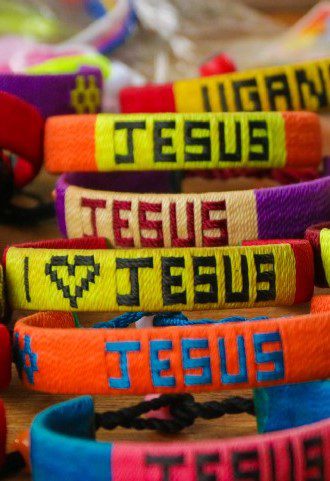
Haugen writes,
“What became more disturbing was his list of things that Christians, like me, actually say — like, blessed are the poor and humble; it’s better to give than receive; judge not, lest you be judged; love your neighbor as yourself, etc. — and examining how differently I would live my life if I actually believed such things. As Mill concluded, ‘The sayings of Christ co-exist passively in their minds, producing hardly any effect beyond what is caused by mere listening to words so amiable and bland.’”
Perhaps this is a 19th-century prognostication of an approaching 21st-century Western spiritual malaise: Evangelical atheism. Yet, Scripture’s warnings against this divide, writing centuries before the analysis of John Stuart Mill, indicate that heresy is endemic to the human character. All believers have the potential of failing while at the same time priding themselves on exterior mental assent to biblical principles of belief.
Need we (need I) begin asking ourselves (asking myself),
“Am I really an unbeliever in church clothes?”
Or perhaps a better question would be,
“Where are the areas of faith in which I am practicing disbelief? Where am I really NOT seeking a Jesus-shaped spirituality?”
The Cure for Evangelical Atheism
I often pause in the outside lobby of bookstores because many of them stack their really bargain books in enticing displays that catch the attention of an avid book-lover like myself. A while back, I picked up (for $5) 7 Minutes of Magic: The Ultimate Energy Workbook. A blurb by Deeprak Chopra graced the cover, “A perfect blend of Western and Eastern fitness to jump-start your day and help you relax at night.” Since I am working at getting eight hours of sleep per night as part of my aging-gracefully attempt, I thought I might pick up some tips for evenings when I need to begin incorporating the 7 minutes of relaxing techniques for those mornings when I can’t afford the hour that visiting an exercise class would take.
The book has sat, unopened, on my bedroom chair for several years.
This 7-minute approach of flow exercises and stretches is supposed to give me a “lightning flash of vitality” after a long night of inactivity. Somehow (isn’t it strange?) that book hasn’t done a thing for me … just sitting on the chair with the cover photo of some well-toned practitioner stretching from spine to flap.
Get the picture? We must do what we know is good for us — or at least we must try to do what we know is good for us. Thinking things are so is not enough to establish a reality that things are so.

When starting the International Justice Mission, Haugen and his colleagues put themselves in a place where they were utterly dependent upon God. Perhaps you can imagine the reality of this need if you think about the way they spend the majority of their time fighting sex trafficking all around the world, going into brothels and dens of human slavery and freeing young girls from their bondage to enforced prostitution.
“This is why I am so grateful for my experience with IJM,” Haugen writes,
“Because it gives me a continual experience of my weakness in which God is delighted to show his power … We are forced by our own weakness to beg him for it, and at times we work without a net, apart from his saving hand. And we have found him to be real — and his hand to be true and strong — in a way we would never have experienced strapped into our own safety harnesses.
“In concrete terms, what does that desperation look like? For me, it means being confronted with a videotape of hundreds of young girls in Cambodia being put on open sale to be raped by sex tourists and foreign pedophiles. It means going into a brothel in Cambodia as part of an undercover investigation and being presented with a dozen girls between the ages of five and ten who are being forced to provide sex to strangers. It means being told by everyone who should know that there is nothing that can be done about it. It means facing death threats for my investigative colleagues, high-level police corruption, desperately inadequate aftercare capacities for victims and a hopelessly corrupt court system. It means going to God in honest argument and saying, ‘Father, we cannot solve this,’ and hearing him say, ‘Do what you know best to do, and watch me with the rest.’”
Because of this dependency and because of the intransigency of the evil that is being confronted, IJM staff begins the first half-hour of the day in quiet reflection, to listen, to be still, to sort things through. Then, they gather again — every day at 11 a.m. — to pray about the life-and-death situations they are facing.
That’s a cure for Evangelical atheism if I ever saw one — a long dose of Jesus-shaped spirituality; a contemplative discipline observed before entering into International Justice Mission’s particular daily dangers of holy mission.
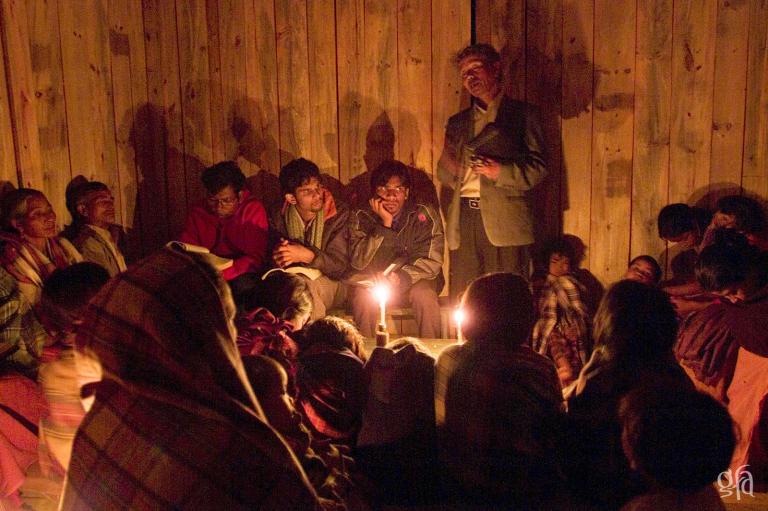
A Jesus-Shaped Spirituality
Through the years, David and I have also been impressed with the ministry of Gospel for Asia (GFA). The visionary founder, KP Yohannan, connected with us early in his ministry. We were drawn into his vision and passion to help the people in Asia. K.P. has truly been a pioneer in challenging the Western-missionary effort to understand that brown-skinned brothers and sisters might be better equipped, less costly to underwrite, already familiar with customs and languages and filled with a passion for their own lands that lead them to willingly undergo beatings and persecutions for Christ’s sake, than many white-faced brothers and sisters.
Gospel for Asia’s initial drive to establish local fellowships has blossomed into 3–4 million or so believers who are being pastored and discipled by Indian nationals.
In addition to local fellowships, Gospel for Asia-supported workers have responded to the most hopeless of social situations with practical and effective ministries: student sponsorship to educate some 70,000+ children; medical teams working with health issues and teaching the basic preventive measures that ward off 80 percent of those physical problems, which usually are present in the long lines at local clinics. GFA’s field partner is one of the largest installers of clean water wells and filters among the development organizations worldwide and, in addition, provides means for micro-businesses, which give initial start up tools to create sustainable incomes. Widows are tended to, children are invited to after-school programs, families are strengthened. The list of good works goes on and on.

Many fine relief and development organizations do the same; the United Nations, for example, sponsors excellent social outreaches in most of the countries of the world. The difference, I would maintain, however, between Gospel for Asia (GFA) and other large, well-known operations is that GFA doesn’t just deal with the physical failures caused by poverty or ignorance or natural disasters, it deals with the spirit of the dilemmas:
What is it in the human heart that also leaves people vulnerable in the machinations of systemic exploitation? What is the spirit lacking in the heart and soul of this child, this man or woman, this family or this community?
Gospel for Asia (GFA) understands that it is facing more than surface difficulties; there are deep endemic prejudices, racial and tribal injustices and institutions adamantly committed to keeping others entrapped by the economic failures that benefit others. Gospel for Asia (GFA) comprehends that it must get to the spirit of the matter, and since its inception, that fight has been accomplished through committed and regular and unusual amounts of time that its home offices in various centers and among its staff within 14 Asian countries spend in dedicated, determined prayer.
This is not an organization that mouths the belief that prayer is the basis for ministry, for touching the heart of God, for receiving direction and guidance without also activating a systemic organizational commitment to hours of prayer for its work in the world. Gospel for Asia (GFA) is a praying organization.
David and I, personally, have often been shamed by GFA’s commitment to a kind of prayer that we have not activated nearly as well in our own ministry outreaches.
So, what do you think about all this? What would happen if we Evangelicals, all of us, sincerely asked the question:
“If I really believed what I say I believe, how would it radically change what I think and speak and do?”
I’m looking at my own heart, conducting an honest self-examination, quietly considering my own bent being, finding hypocrisies I haven’t wanted to face, and with God’s help, yanking out those insidious roots that lead to hidden heresy, to actions and attitudes that are decidedly unchristian. I am examining the heretical possibilities in my own approach to living out my faith. I desperately do not want to die having a form of godliness but denying the potential power of it to change my life and the lives of those around me. And I want to concentrate my prayers on the younger generations — on grandchildren and millennial friends — in such a way that they can identify some kind of radical difference in my life. I do not want to leave a legacy of being an ordinary, everyday Christian.
How about you — are you willing to search for and possibly find any hidden closet evangelical atheism? Then, let us both deal earnestly with the following question asked by Christ of His followers:
“But why do you call me ‘Lord, Lord’ and do not do the things I say?” — Luke 6:46
Sources: Pew Research, Religion Among the Millennials
Click here, to read more blogs on Patheos from Gospel for Asia.
Go here to know more about Gospel for Asia: GFA | GFA.org | Facebook | YouTube | Twitter | Lawsuit
For more information about this, click here.
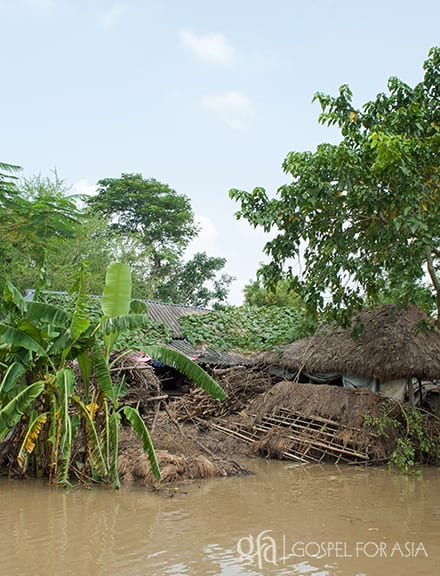
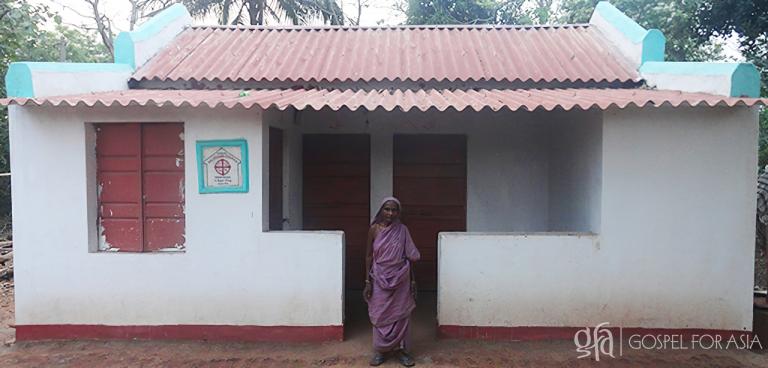


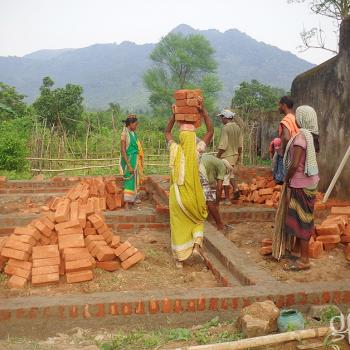
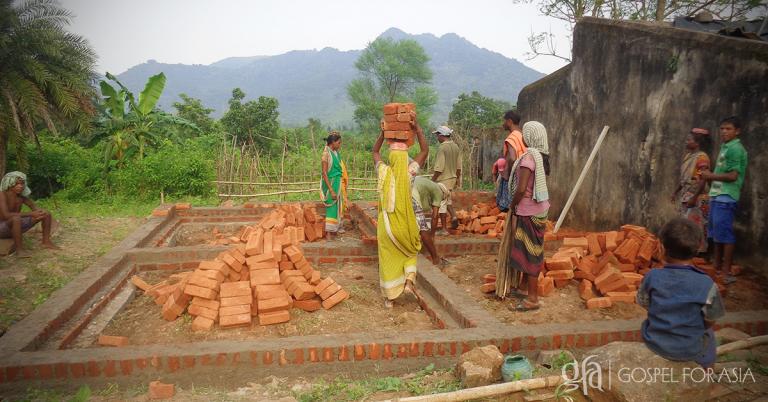
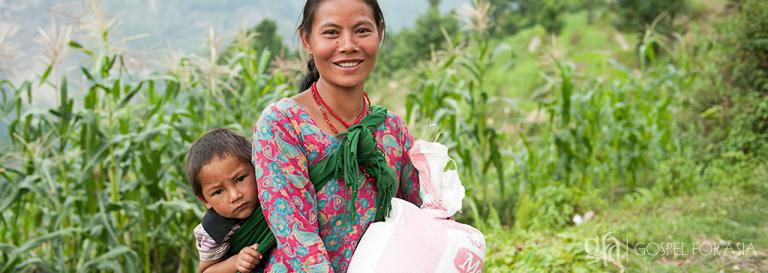
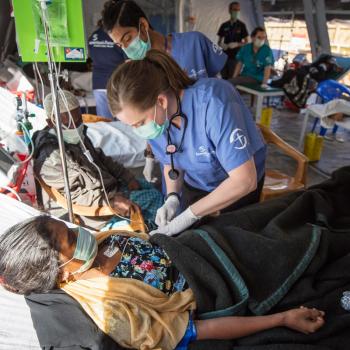
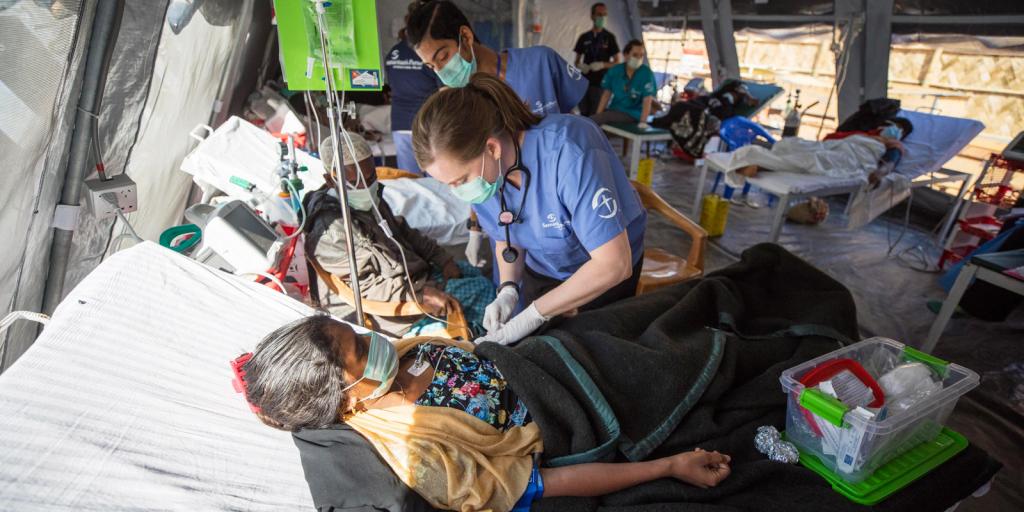
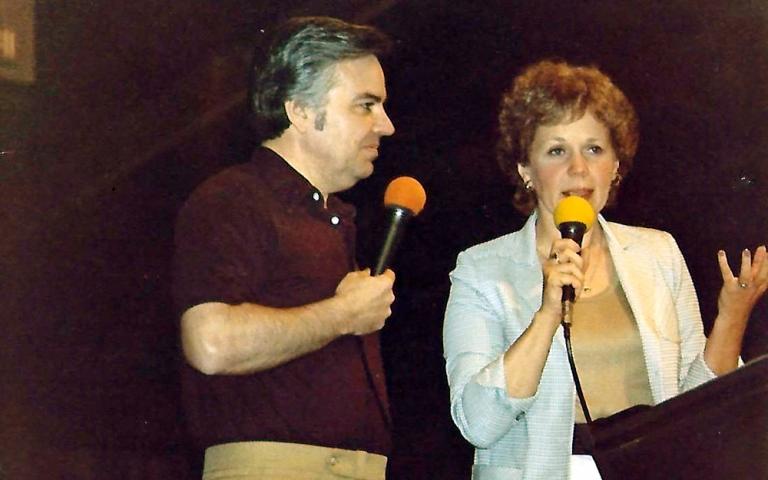
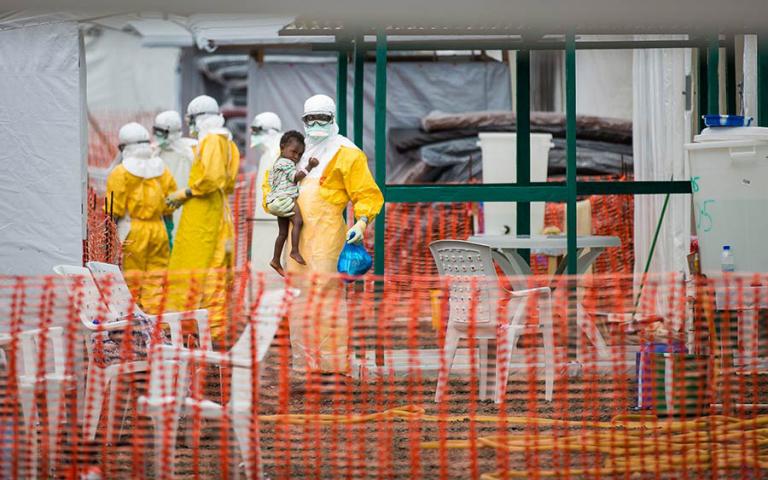
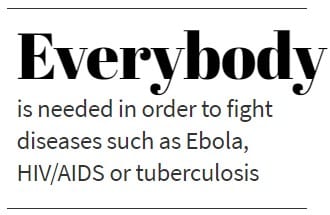
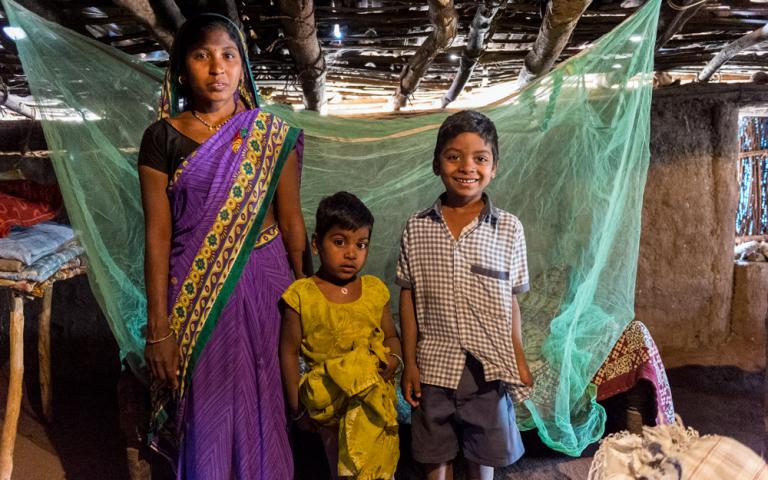
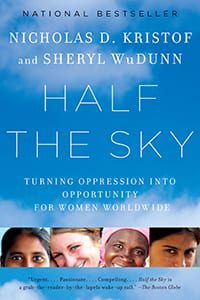
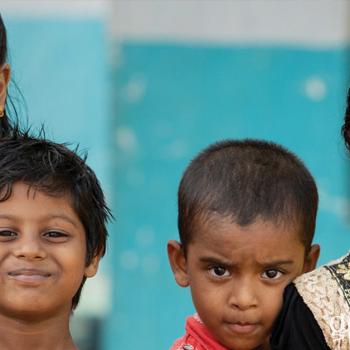
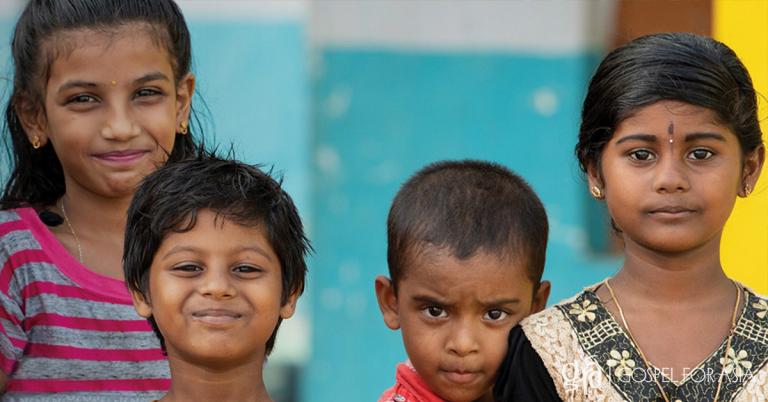
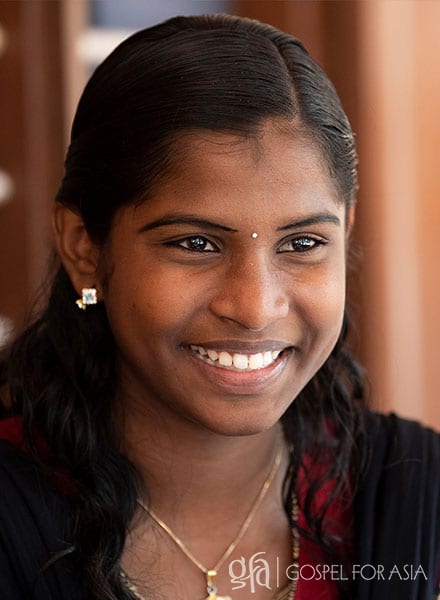
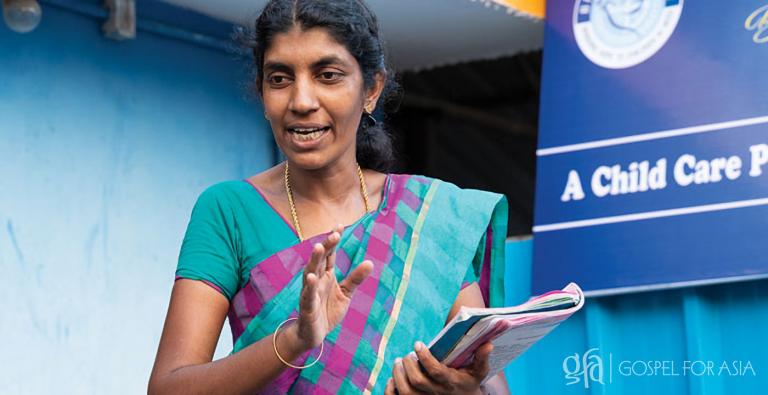
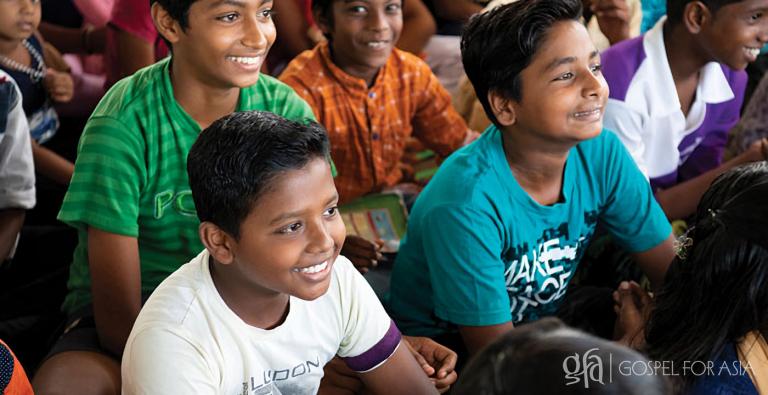

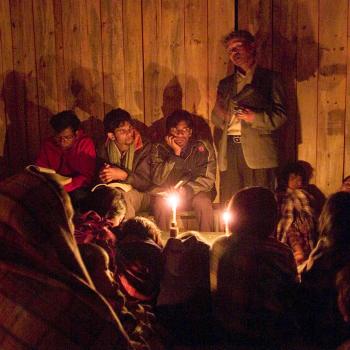







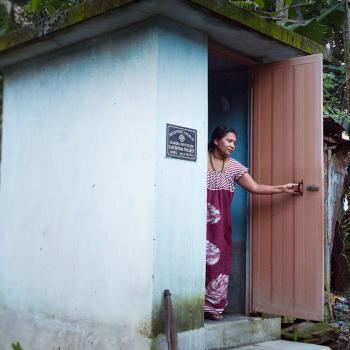
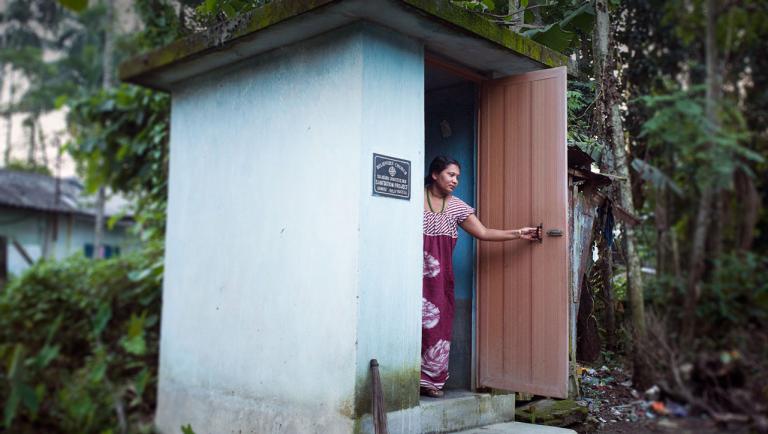

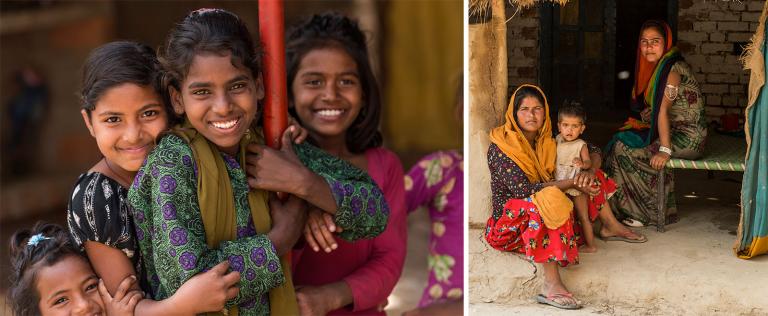
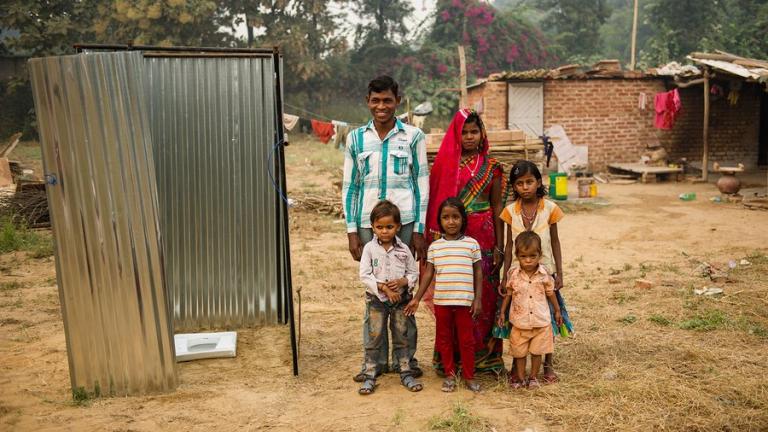
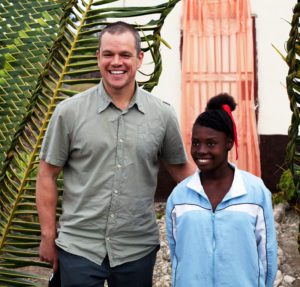
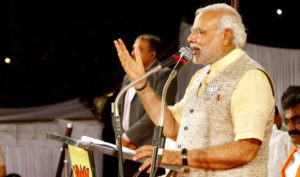
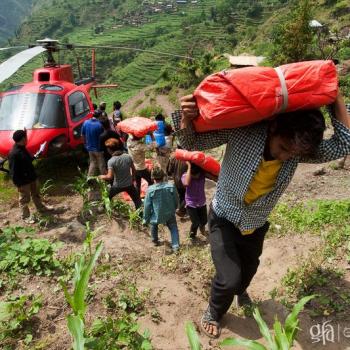
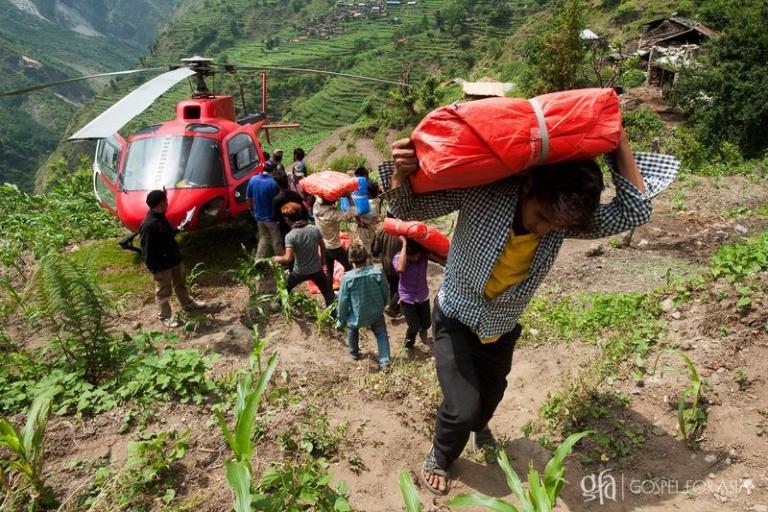
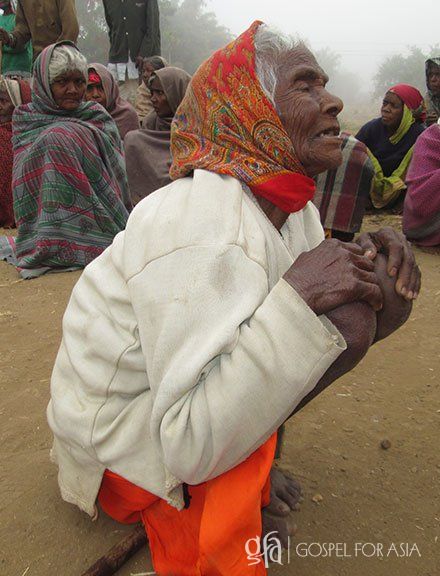
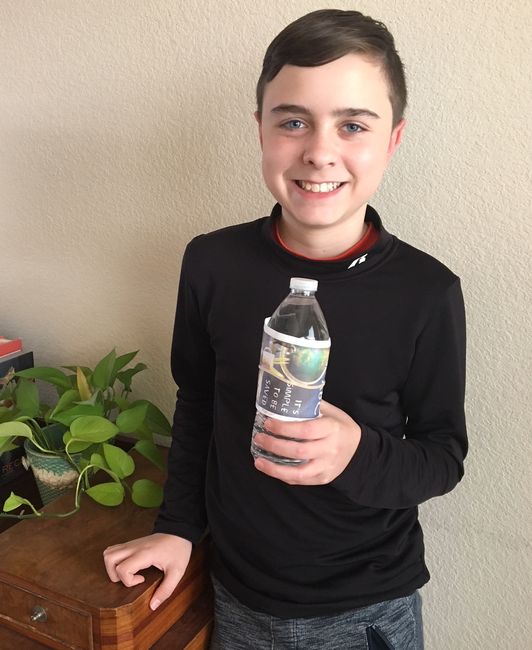
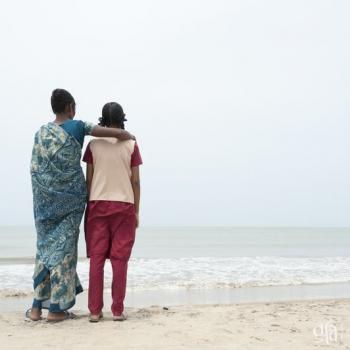
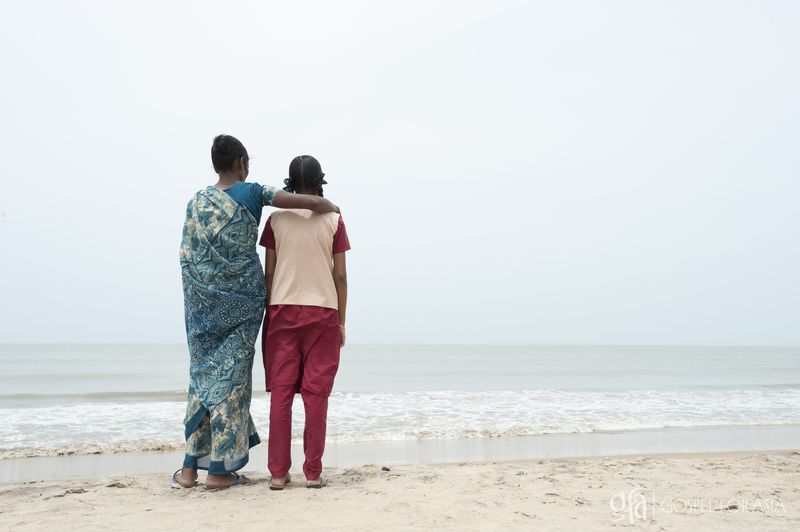
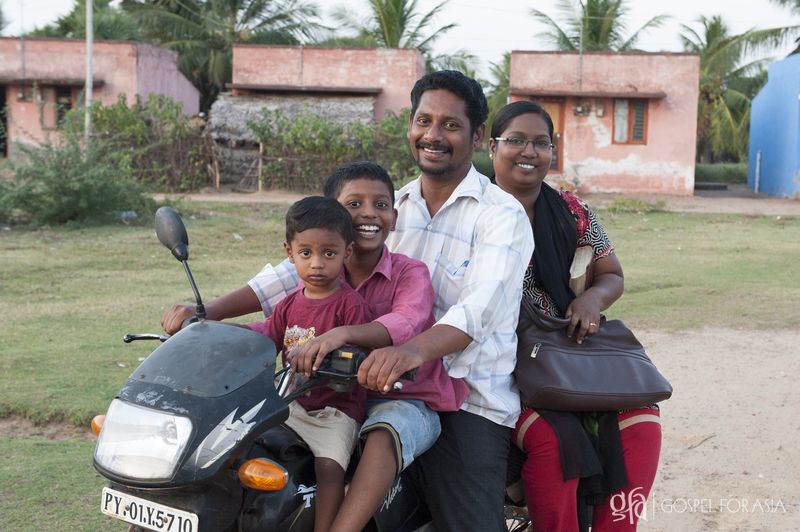
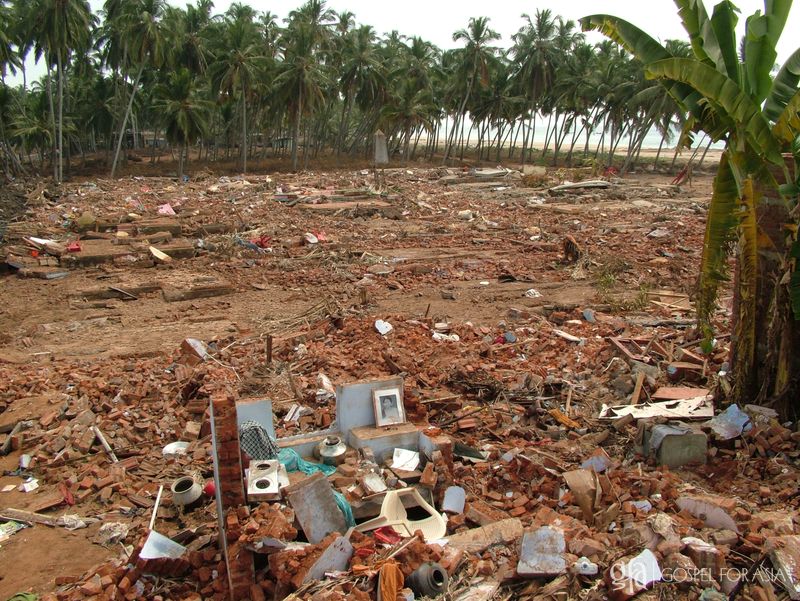
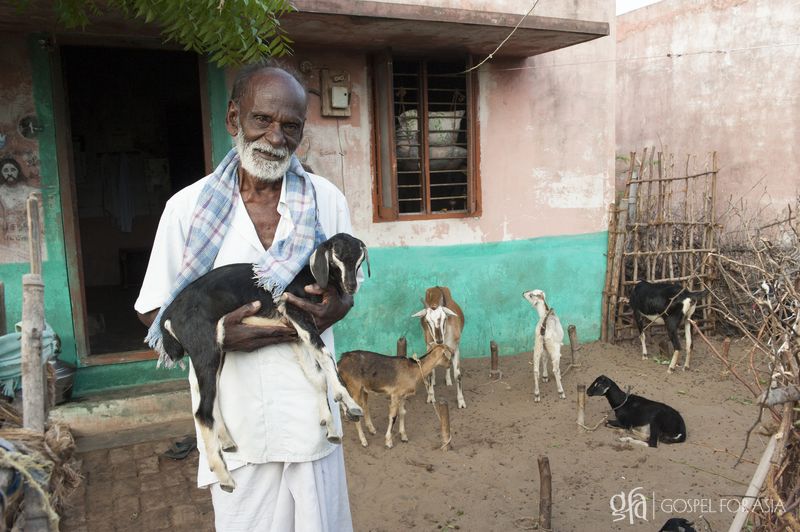
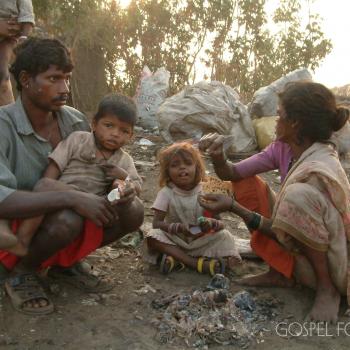
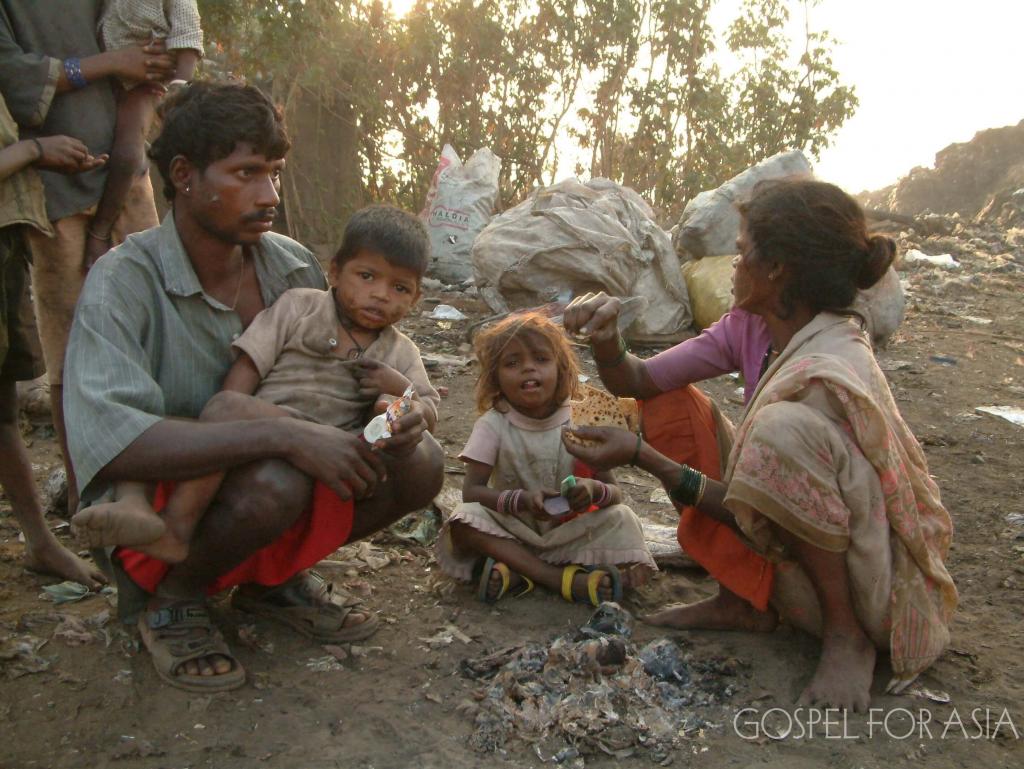
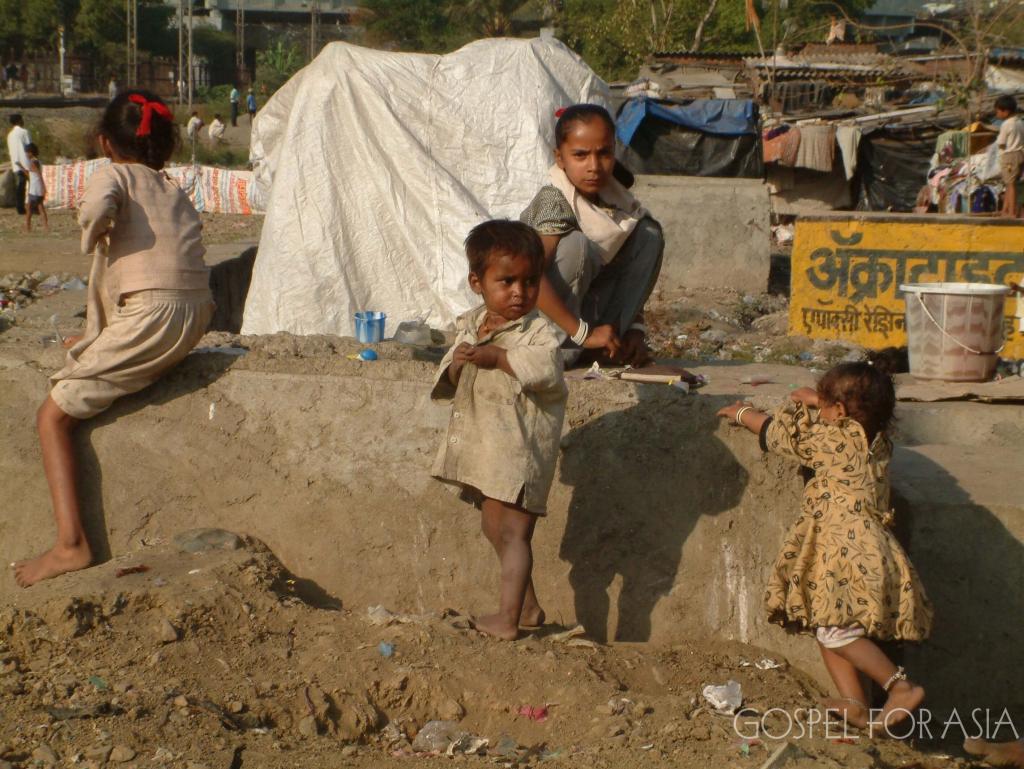
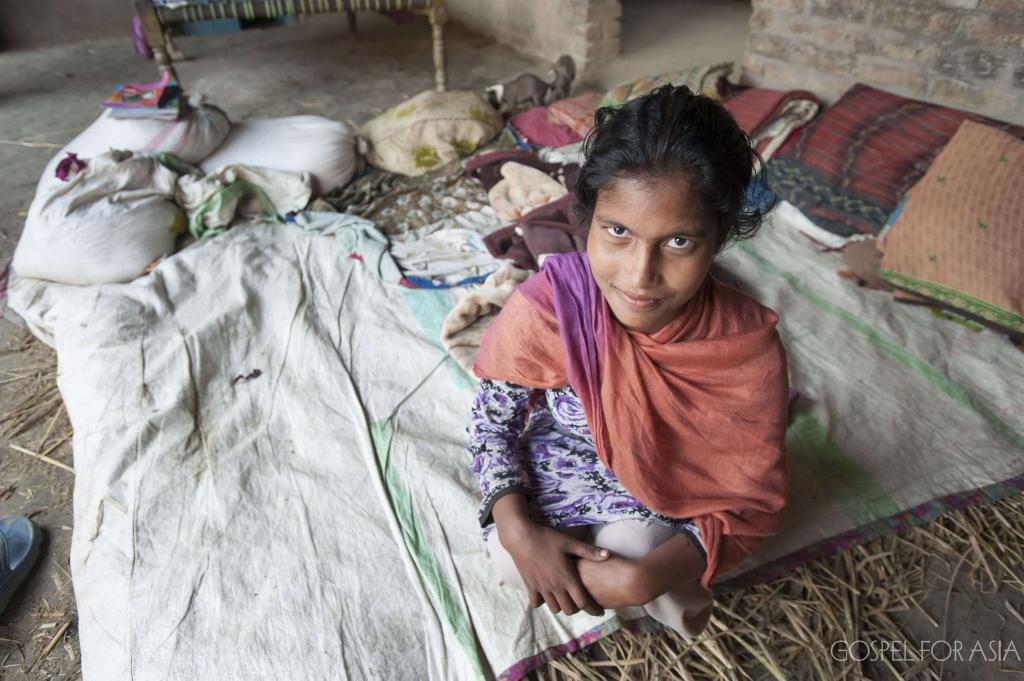
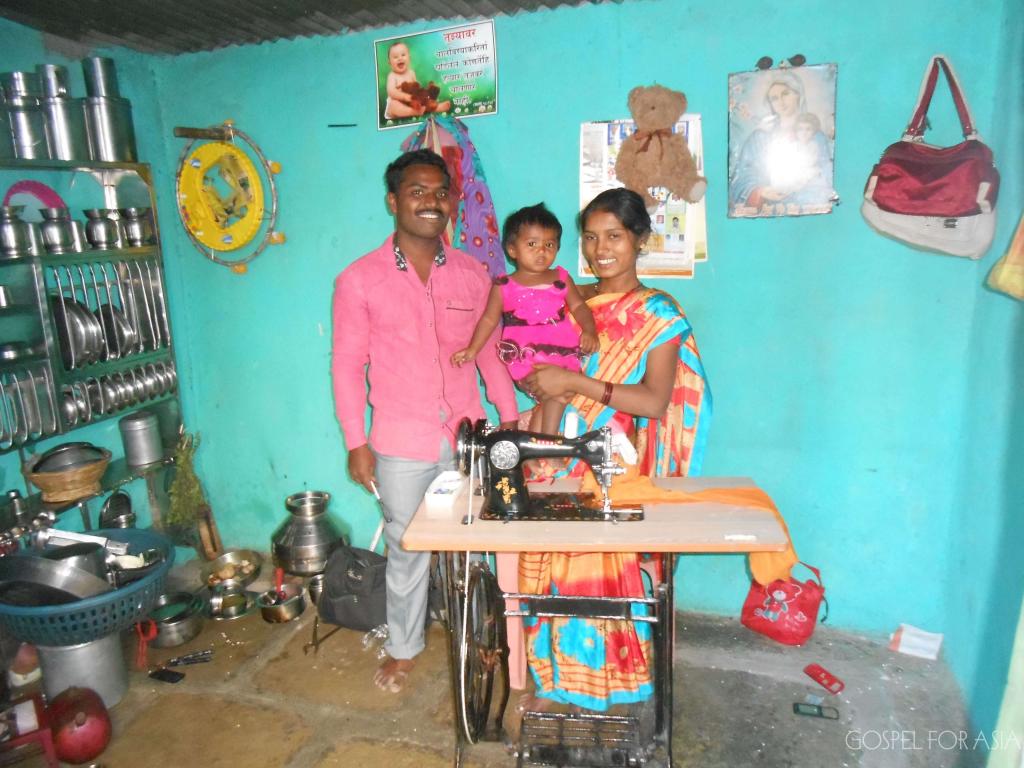
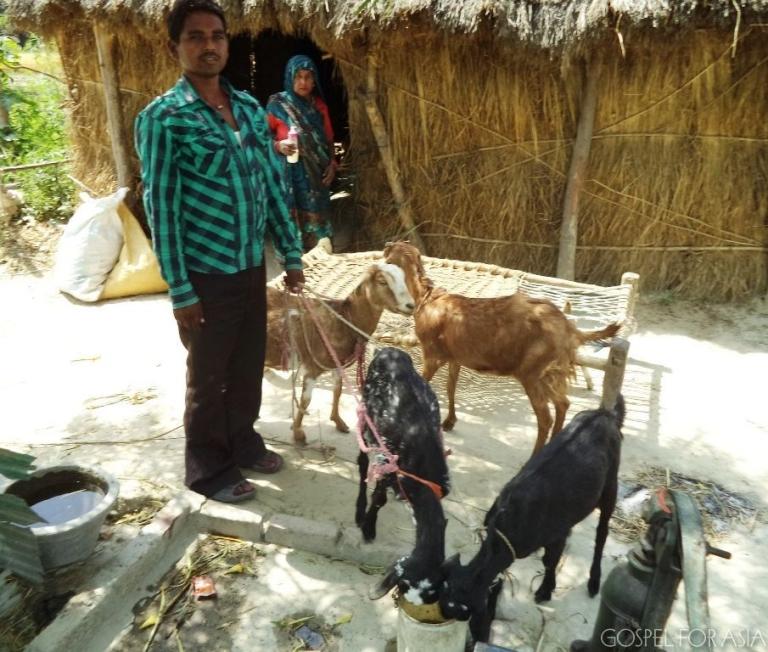
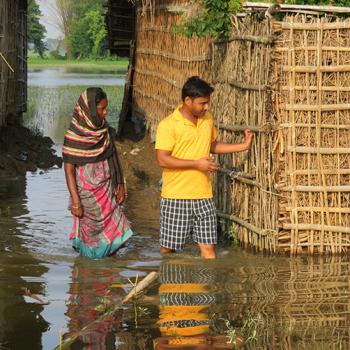
![One field correspondent in India wrote, “There is no proper communication. [The villagers] are unable to get food, clean drinking water and are having sleepless nights because of the continuous heavy rain.”](https://wp-media.patheos.com/blogs/sites/792/2017/10/2017-10-13-disaster-reduction-day.jpg)
